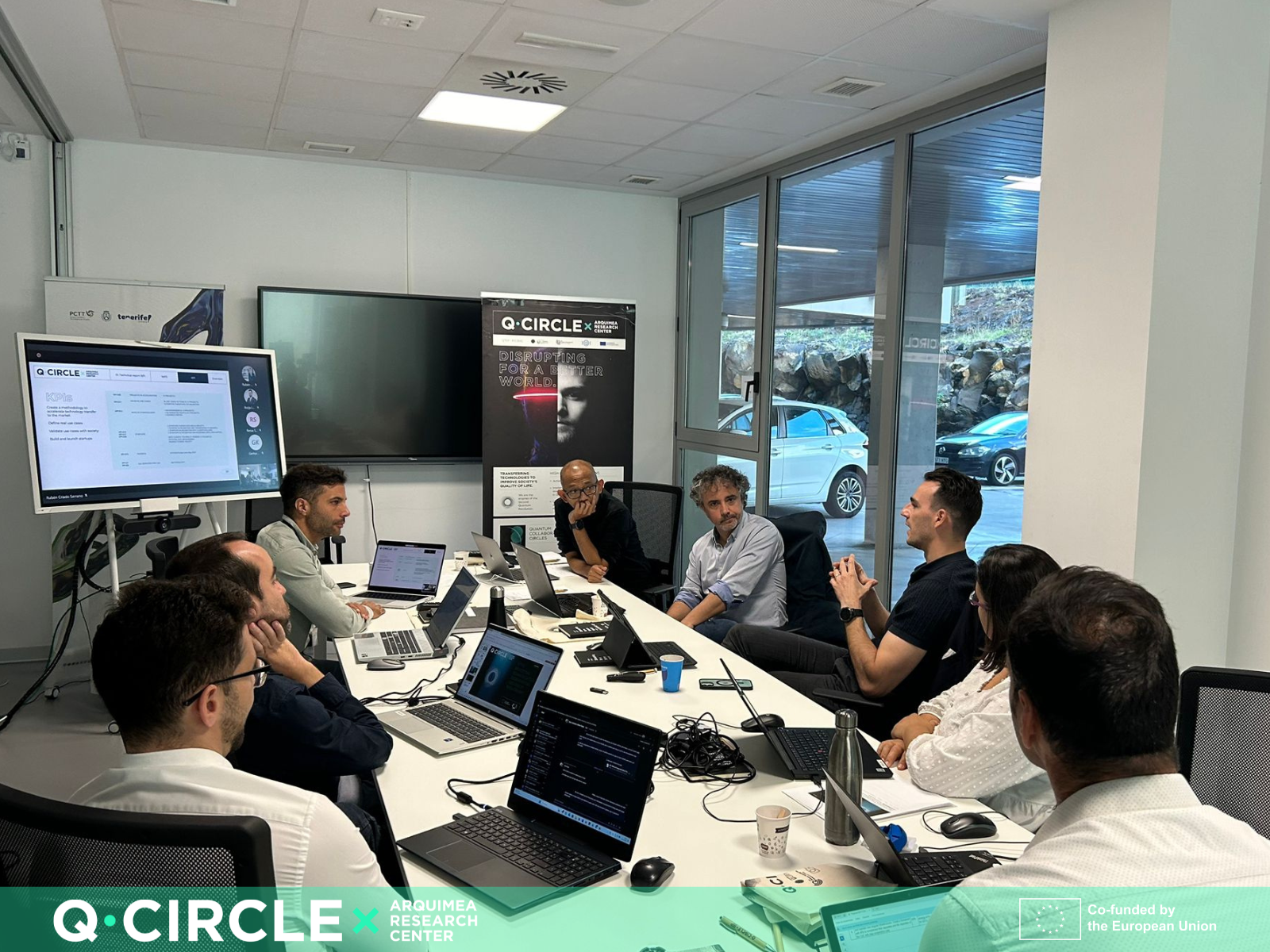- Sectors
- Aerospace & Defense
- Big science
- Biotechnology
- Fintech
- Insights

On 15 November, ARQUIMEA Research Center, the private non-profit research center of the Spanish technology company ARQUIMEA, held the annual meeting of the QCIRCLE project at its headquarters in Tenerife. This key meeting was attended by the international partners of the consortium, consolidating the progress achieved during the last year and defining the next steps to continue developing the project in an optimal way.
The meeting included a review of the milestones achieved to date, such as the establishment of the foundations of the center of excellence, advances in applied research and the first steps taken towards sustainability in the technological field. Likewise, improvements and strategies to overcome the challenges of the project were discussed, reaching agreements that will mark the roadmap for the future development of QCIRCLE.
European leadership from the Canary Islands
Selected in the European Union’s competitive Teaming call, the QCIRCLE project aims to create a center of excellence dedicated to the development of sustainable quantum technologies. ARQUIMEA Research Center leads this initiative from its headquarters in Tenerife, standing out as the first Spanish project to receive this award.
The international consortium of the project brings together leading entities, such as the CSIC and its quantum platform QTEP (Spain), the University of ULM and its Institute of Quantum Optics (Germany), the Institute for Quantum Optics and Quantum Information of the Austrian Academy of Sciences (Austria), and the UK Quantum Technology Hub Sensors and Timing (UK).
The European Union has positively assessed the innovative ecosystem of the Canary Islands, highlighting its potential to position itself as a European benchmark in quantum technology. ARQUIMEA’s multidisciplinary model and accelerated approach to R&D commercialisation have been key to this selection.

“Funded by the European Union. Views and opinions expressed are however those of the author(s) only and do not necessarily reflect those of the European Union. Neither the European Union nor the granting authority can be held responsible for them.”